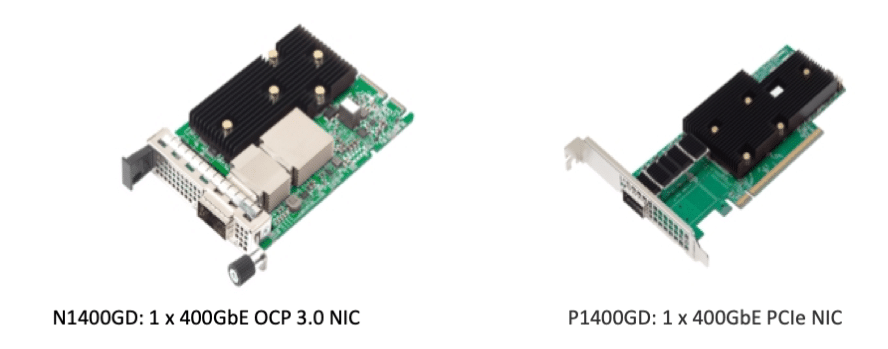Broadcom has introduced its latest portfolio of highly scalable, high-performing, low-power 400G PCIe Gen 5.0 Ethernet adapters.
Broadcom has introduced its latest portfolio of highly scalable, high-performing, low-power 400G PCIe Gen 5.0 Ethernet adapters. These products are designed to revolutionize the data center ecosystem by providing an enhanced, open, standards-based Ethernet NIC and switching solution to resolve connectivity bottlenecks as XPU bandwidth and cluster sizes rapidly increase in AI data centers.

Jas Tremblay, vice president and general manager of the Data Center Solutions Group at Broadcom, emphasized the company’s dedication to fostering a power-efficient and highly connected data center for the AI ecosystem. Tremblay highlighted Broadcom’s focus on open standards and collaboration with industry leaders to offer a comprehensive range of high-performance connectivity solutions for AI infrastructure. The new 400G PCIe Gen 5.0 Ethernet adapters exemplify this commitment by supporting network-centric AI infrastructure platforms.
400G PCIe Gen 5.0 Specifications
| Specification | |
| Lifecycle | Active |
| Distributor Inventory | Yes |
| Adapter Type | PCIe NIC |
| ASIC | BCM57608 |
| Connectors | QSFP112-DD |
| OS Support | Red Hat Enterprise Linux, SUSE® Linux Enterprise Server, Ubuntu, DPDK |
| Host Connector | PCIe 5.0 x 16 |
| Link-Speeds | 400/200/100/50/25GbE |
| Multi-Host | No |
| NPAR | Yes |
| Ordering Part # | PCIe NIC – BCM957608-P1400GDF00
OCP 3.0 NIC – BCM957608-N1400GDP00 |
| Ports | 1 |
| RoCEv2 | Yes |
| TruFlow | Yes |
| TruManage | Yes |
N1400GD 1 x 400GbE OCP 3.0 Adapter
Broadcom has also introduced the 400G OCP 3.0 adapter. The BCM57608 400G NIC is specifically designed for the demanding networking requirements of AI workloads, highlighted by highly high bandwidth utilization, intermittent data surges, and extended job durations.
The BCM57608 400G NIC leverages Broadcom’s 5nm process technology and is designed to fit into a PCIe Gen5 slot. This high-performance network interface card delivers an impressive 400 Gbps throughput, making it ideal for the high-scale, data-intensive environments typical of AI applications. Additionally, the NIC is optimized for low power consumption, ensuring efficiency in AI workloads that require sustained performance over long periods.
Power and Thermally Efficient Design
Broadcom’s new Ethernet adapter portfolio is the first in the industry built with 5nm process technology, enabling the most power-efficient and thermally-efficient design. These adapters can drive passive copper cables up to five meters or use ultra-low-power linear pluggable optics transceivers. Combined with Broadcom’s high-radix Ethernet switches, these adapters deliver higher rack density with mainstream air-cooling technology, making them ideal for modern data centers.
The demand for higher data transfer speeds in future AI networks is rapidly growing. Broadcom’s Ethernet adapters, equipped with a third-generation RoCE pipeline, low-latency congestion control technology, and innovative telemetry features, are designed to meet these needs. This portfolio is well-suited for AI infrastructure’s high-bandwidth, high-stress network environments.
Backed by Broadcom’s expertise in high-performance Ethernet solutions, this next-generation portfolio features the company’s sixth-generation-hardened NIC architecture. The adapter software is designed to be vendor-agnostic, supporting a broad ecosystem of CPUs, GPUs, PCIe, and Ethernet switches using open PCIe and Ethernet standards. As a founding member of the Ultra Ethernet Consortium, Broadcom underscores its commitment to a standards-based ecosystem.
Availability
The 400G PCIe Gen 5.0 Ethernet family (BCM57608) is now available from multiple server vendors and directly from Broadcom.
For more information on Broadcom’s Ethernet adapter portfolio, click here.
Engage with StorageReview
Newsletter | YouTube | Podcast iTunes/Spotify | Instagram | Twitter | TikTok | RSS Feed
